How do SAP specialists work and how much do they earn?
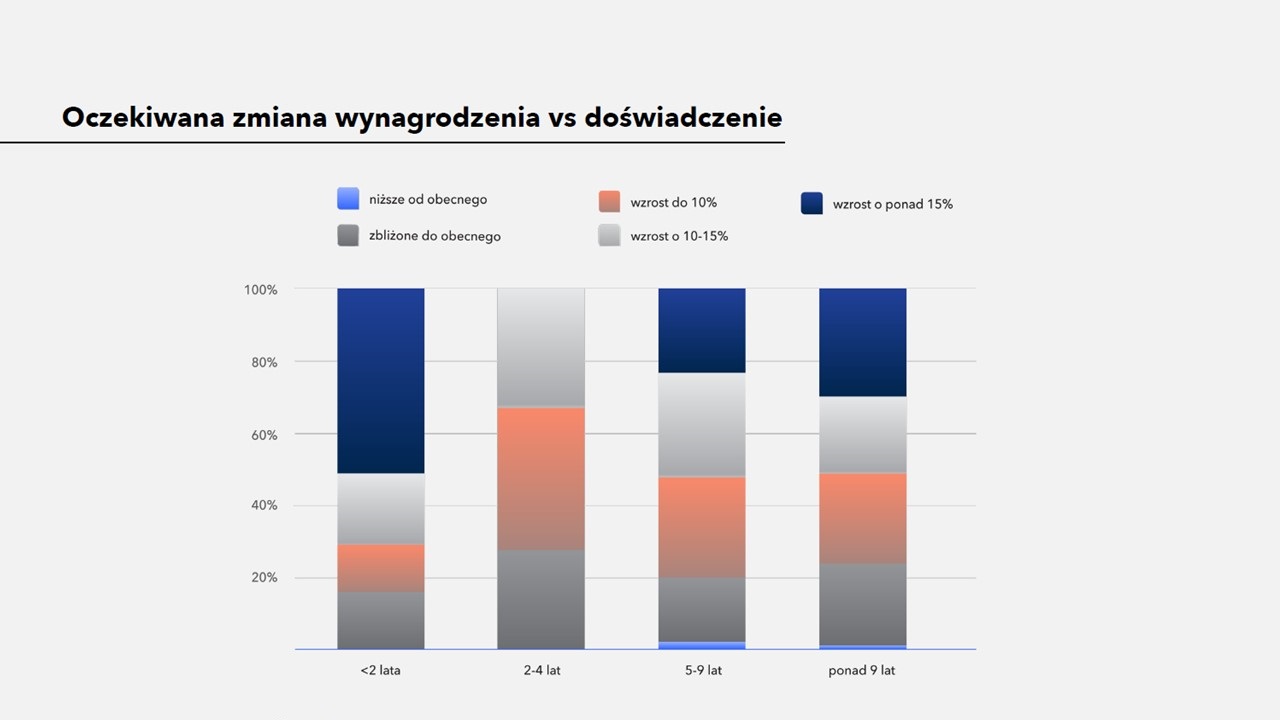
The predominant form of employment for SAP consultants and developers is a permanent employment contract, chosen by 59.5% of those surveyed. Women choose this form of employment much more frequently (86%) than men (54%). There is also a clear correlation between the choice of employment form and age. Among consultants with 5-9 years of experience, 34% run their own business, while for the group with more than 9 years of experience, it is already 53%. At the same time, almost 10% of consultants with 5-9 years of experience work for 2 or more companies, while in the range of over 9 years of experience, almost every third one does so. The phenomenon of overemployment particularly affects specialists who already have established their knowledge and skills. On the one hand, this may be a result of the continuous talent shortage – one person is working on several projects at the same time because there is such a high demand for work. On the other hand, it may be due to poor project work organisation – the consultant has the space to perform tasks in another company.
86% |
40% |
28% |
| of women in SAP work on a permanent employment contract | run their own business | of consultants with 9+ years of experience work for 2 or more companies |
Contract type depending on the number of employers
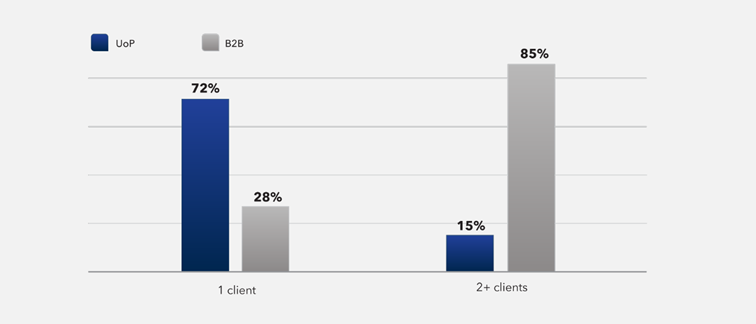
Work experience vs. running a business
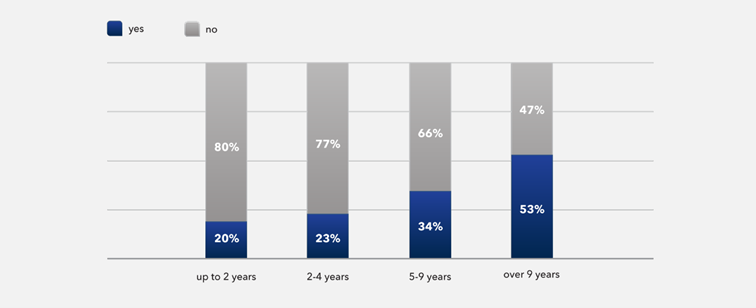
The choice of employment form translates into earnings. The majority of freelancers earn over 200 PLN/hour. In the case of permanent employees, only 14% of those surveyed achieve a comparable earnings level. The motivation for running one’s own business is widely known – tax optimization. Increasing costs that both the employee and the employer incur under the employment contract encourage both parties to look for an alternative to permanent employment – whether by hiring consultants on so-called “internal” B2B contracts or using the services of consulting and outsourcing firms. Organisations whose policies do not allow them to employ specialists on B2B contracts or use outsourcing face a lack of access to an increasingly large pool of competencies.
What type of company do you currently work for?
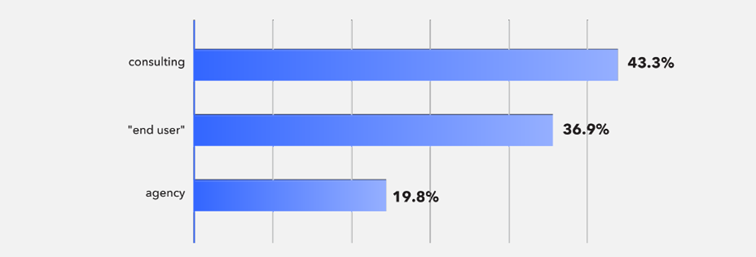
Hourly rate (net) / Monthly salary (gross)
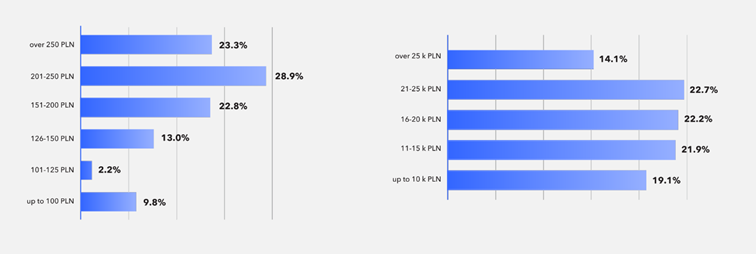
Hourly rate (net) divided by modules
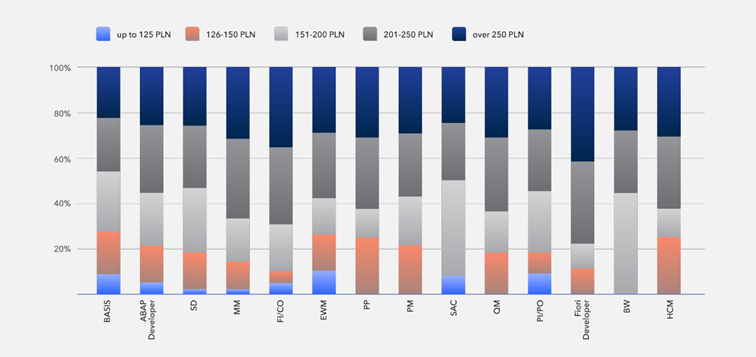
Monthly salary (gross) divided by modules
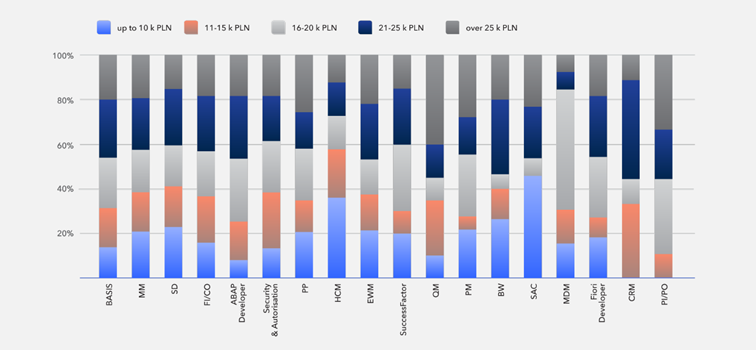
Observing the Polish SAP job market, one can conclude that the popularity of employment contracts will decrease. Due to the tax system, experienced specialists want to monetize their work faster and choose B2B contracts. At the same time, companies facing the challenge of migrating to S/4HANA are willing to outsource experienced experts and entire teams. Employment contracts are more often chosen only by young consultants dedicated to maintenance tasks. Only 4.8% of surveyed SAP specialists work from their company’s office. The more experienced the consultant, the less likely they are to be present in the office. In the case of consultants who work for one employer or client, the youngest employees (13%) are most likely to work from the office. Among those with more than 9 years of experience, it is only 2%. Two-thirds of the respondents work remotely, with the more experienced ones more likely to do hybrid work. Almost all consultants who work for 2 or more companies work exclusively remotely. Considering the shortage of SAP skills, organisations will face a choice: either offer remote work or close access to the majority of experienced people. Another solution is to invest in juniors, who are more willing to work from the office.
4.8% |
2/3 |
| of respondents work from an office | of consultants work remotely |
Remote working versus work experience (single employer/client)
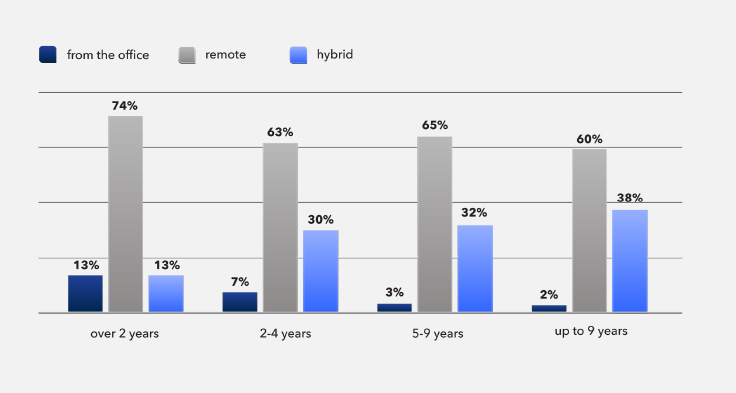
Remote working for more than one employer/client
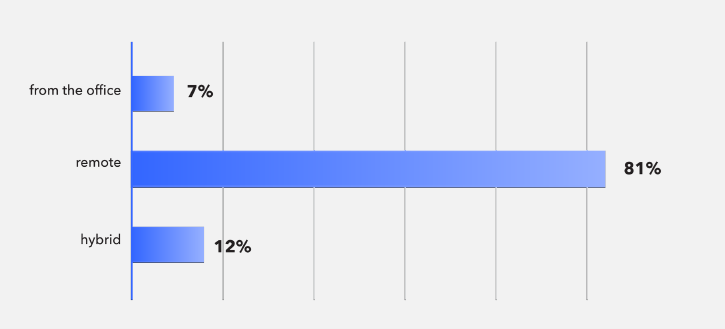
The article is part of the report “SAP labour market in Poland. Analysis and forecasts for 2023-2025.” The entire report can be downloaded free of charge here: DOWNLOAD SAP REPORT
FIND OUT HOW WE SUPPORT THE BUSINESS IN DEVELOPING IT AND SAP TEAMS.
DO YOU WANT TO DEVELOP IN THE IT OR SAP AREA? CHECK OUT OUR OFFERS.



